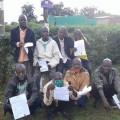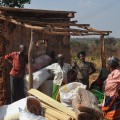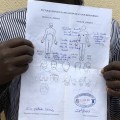DEFENDING LAND AND ENVIRONMENTAL RIGHTS
A land grab case against Agilis Ranch 20 and 21 Limited kicks off next week.

DEFENDING LAND AND ENVIRONMENTAL RIGHTS
Court Alert: Court Grants Bail to Jailed Defender and Wife.
DEFENDING LAND AND ENVIRONMENTAL RIGHTS
A land rights defender and his wife have been arrested, charged, and sent to prison.
DEFENDING LAND AND ENVIRONMENTAL RIGHTS
Crackdown on EACOP protesters intensifies: 35 Activists arrested in just four months.
-

 MEDIA FOR CHANGE NETWORK2 weeks ago
MEDIA FOR CHANGE NETWORK2 weeks agoReport reveals ongoing Human Rights Abuses and environmental destruction by the Chinese oil company CNOOC
-

 SPECIAL REPORTS AND PROJECTS2 weeks ago
SPECIAL REPORTS AND PROJECTS2 weeks agoThe Environmental Crisis Is a Capitalist Crisis
-

 MEDIA FOR CHANGE NETWORK3 days ago
MEDIA FOR CHANGE NETWORK3 days ago“Vacant Land” Narrative Fuels Dispossession and Ecological Crisis in Africa – New report.
-

 SPECIAL REPORTS AND PROJECTS2 weeks ago
SPECIAL REPORTS AND PROJECTS2 weeks agoGlobal use of coal hit record high in 2024
-

 MEDIA FOR CHANGE NETWORK2 weeks ago
MEDIA FOR CHANGE NETWORK2 weeks agoLands ministry rejects call to save over 300 Masaka residents facing eviction
-

 MEDIA FOR CHANGE NETWORK5 days ago
MEDIA FOR CHANGE NETWORK5 days agoSeed Sovereignty: Most existing and emerging laws and policies on seeds are endangering seed saving and conservation on the African continent.
-

 MEDIA FOR CHANGE NETWORK3 days ago
MEDIA FOR CHANGE NETWORK3 days agoUganda’s Army is on the spot for forcibly grabbing land for families in Pangero Chiefdom in Nebbi district.
-

 NGO WORK4 days ago
NGO WORK4 days agoDiscover How Foreign Interests and Resource Extraction Continue to Drive Congo’s Crisis


























